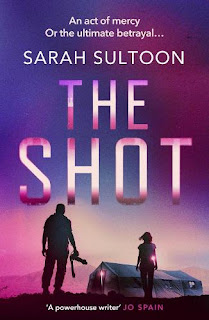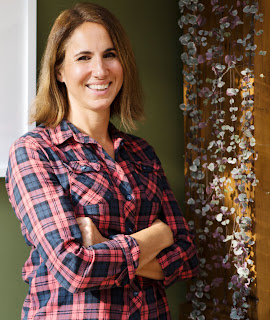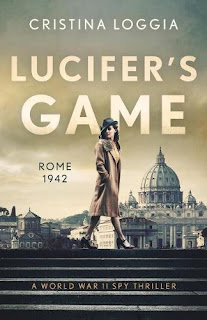Meet Sarah Sultoon Author of The Shot
A war reporter is faced with a moral dilemma in Sarah Sultoon's second novel The Shot, set in Iraq, Afghanistan and Darfur, and inspired by Sultoon's own experiences as a CNN executive. What's the fine line between reporting on and becoming the story? Sultoon tells us how war journalism has changed; attitudes towards journalists' mental health; what she reads to escape and the best writing tip she's ever been given.
Download the ebook of The Shot from Amazon or buy the paperback from Thriller Women's list at Bookshop.org. NB: if you buy books through this link we may earn a commission from bookshop.org, whose fees support independent bookshops.
TW: Sarah, huge congratulations on The Shot, which, despite the central characters being journalists, feels like a very different kind of story to The Source, but just as brutal, if not more so, in its delivery. How did you find the process of writing this novel compared to your first one, and what made you choose to focus on war zones in Iraq, Afghanistan and Darfur?
SS: I followed a very similar process to writing The Source, that is to say, not much of a process at all! It was an easier book to write in almost all ways though as I knew exactly what was going to happen and how I was going to get there from the start. I spent a long time in Afghanistan Iraq and Darfur as a journalist – I had lots to revisit!
TW: Samira and Kris are two very contrasting characters, Samira ‘pure’ and Kris ‘rotten’. They are the light and dark of the novel, innocence versus experience. Was that something you intended from the outset, and how did you construct the two characters? To what degree were they based on people you have come across in real life?
SS: I’m not sure how much of their characterisation was intentional as much as instinctive—I knew the story I wanted to write, how I wanted to tell it, where I wanted it to unfold. It just all rolled from there. Much of what actually takes place in the book is autobiographical --- with the notable exception of a few key plot points! Kris has shades of a real person in him but both characters are otherwise a complete fiction.
TW: This novel has a ‘real feel’ to it – there are times it almost feels like you are reading an actual account rather than a fictional story. It is, to use your words, ‘hot with tension’ throughout, and you say in your acknowledgements that it is the product of other people’s pain. Can you tell us something about the length to which your own experience in journalism has gone into this story?
SS: I couldn’t have written this book without my former career. It is absolutely the product of many of my own experiences and emotions—again with a few key exceptions! Guilt - of surviving, of walking away, of being lucky not to have been born in a similar position - pervaded almost everything I did at one point. The fact I’ve now written a book based on a lot of it is another layer of guilt on top! There are aspects of all the events - not just those in war zones - that really happened, sometimes in almost exactly the same way. I still wrestle with the fact I have appropriated some experiences that didn’t happen to me personally. But that is the beauty of fiction, I guess. To try and make some of your own experiences and emotions universal enough that they can speak to total strangers.
TW: One line that really stuck out was when one of the lead characters Kris says to Sami about a story, ‘Watch yourself. It’s not our job to feel it.’ The story as a whole paints quite a bleak view of the world of war correspondents, of these people as individuals, and the damage their jobs and their emotional objectivity can potentially inflict on those closest to them, and on themselves. Is that a fair statement, or has this been exaggerated for the purposes of the novel?
SS: There was certainly a time where it was a fair statement. I’m not sure it is so true now, in the age of personality-driven programming and reporting. There was certainly a time though when it was neither our job to feel it personally nor professionally and many people suffered terribly as a result. Were it not for the efforts of one of my former bosses - Chris Cramer, now sadly no longer with us - it might still be taboo to feel it. Chris was the first in the industry to recognize its psychological impact, in part based on his own experience as a hostage during the Iranian embassy siege in London in 1980.
TW: The Afghanistan-based sections of the novel around Bibi and the harrowing accounts of life under Taliban rule almost feel prescient, particularly in 2021/22. Is this something you were aware of when you were writing the book?
SS: The first draft of this book was actually a short story I wrote in 2018. I then wrote the full length manuscript during the first lockdown in 2020. So no, I wasn’t aware of it until the editing process which took place in the latter half of 2021. That particular section revisits a story we covered ourselves back in 2007 - much later than it is set in the book. Back then we also interviewed the then-President Hamid Karzai and were able to press him on improving prospects for Afghan women. Watching him, flanked by his three daughters, speaking from behind the walls of his family home as Kabul fell back to the Taliban this past August was one of the more chilling things I’ve seen in my life. It is hard to imagine what kind of future those girls face under renewed Taliban rule. Even harder to understand what it was all for.
TW: In your view, has war journalism changed since the events in Iraq, Afghanistan and Darfur back in 2003? Is there now a heightened awareness of the mental health of journalists covering war zones? Have attitudes changed?
SS: Definitely yes - this is the enduring part of Chris Cramer’s legacy. There was once a time where admitting you’d lost your nerve was the absolute last thing you could do if you wanted to keep your job. If you can’t take the heat then get out of the kitchen sort of mindset. But now there are well-established pathways in place to deal with the psychological impact of warzone reporting. I’m not sure it is necessarily easier - the job itself is still as intense as it is rewarding - but there is a far greater awareness of the emotional stakes. And the business itself has moved on from the sorts of two/three month warzone rotations that used to be necessary to cover developments. Although that is a whole other conversation about the whys and wherefores of digital and social media...
TW: The twists at the end of the novel, of which there are several, are startlingly original. Without giving away any spoilers, how much of the story had you plotted out before you began writing a first draft, and what was your approach to writing it?
SS: I knew exactly what was going to happen when I started - very little changed as I wrote. I guess it was just a story that had been brewing in my mind for years off the back of my day job. When it came to writing it all down it just arrived fully formed. That said it needed a lot of rewrites to get it to where it is now! My amazing agent (Jon Wood, RCW) was invaluable in turning it into a proper story rather than just some unwieldy confessional... and then it got further knocked into shape by my publisher Karen Sullivan and editor West Camel.
TW: Which books do you read to escape and who do you feel influenced by as a novelist?
SS: I read anything and everything! When I’m writing myself I tend to stick to the genre, so lots of thrillers: Ian Rankin, Harlan Coben, Tana French etc. And the more atmospheric the better - Abir Mukherjee, Doug Johnstone, Denise Mina. I think I take on a bit of everything I read so it’s hard to cite one major influence. I am a sucker for a sense of place so even though she doesn’t write thrillers, I am always flipping through Maggie O’Farrell’s back catalogue when I feel like I need an elbow to make something come alive just that little bit more.
SS: I read anything and everything! When I’m writing myself I tend to stick to the genre, so lots of thrillers: Ian Rankin, Harlan Coben, Tana French etc. And the more atmospheric the better - Abir Mukherjee, Doug Johnstone, Denise Mina. I think I take on a bit of everything I read so it’s hard to cite one major influence. I am a sucker for a sense of place so even though she doesn’t write thrillers, I am always flipping through Maggie O’Farrell’s back catalogue when I feel like I need an elbow to make something come alive just that little bit more.
TW: What are you working on now?
SS: I’ve just finished the (possibly final, for now!!) edit on my third novel which is a thriller set on the border between Israel and Lebanon during the Grapes of Wrath operation in 1996. It’s a political Cluedo where land is the prize even if it’s where the bodies are buried. Let your imagination go from there!
SS: I’ve just finished the (possibly final, for now!!) edit on my third novel which is a thriller set on the border between Israel and Lebanon during the Grapes of Wrath operation in 1996. It’s a political Cluedo where land is the prize even if it’s where the bodies are buried. Let your imagination go from there!
Quick fire questions:
TW: Most fascinating place you have ever visited in the world?
SS: Gosh that is a tough one. Afghanistan is hard to beat. One of the most beautiful and blighted locations on Earth. But I could list so many: Jerusalem, Buenos Aires, La Paz....
SS: Gosh that is a tough one. Afghanistan is hard to beat. One of the most beautiful and blighted locations on Earth. But I could list so many: Jerusalem, Buenos Aires, La Paz....
TW: Your favourite place to write?
SS: I’ve got a big circular armchair against a powerful radiator where I can sit cross-legged with my laptop on my knees and my dog by my side... I’m there now! It’s divine.
SS: I’ve got a big circular armchair against a powerful radiator where I can sit cross-legged with my laptop on my knees and my dog by my side... I’m there now! It’s divine.
TW: Best piece of advice you have ever received?
SS: About writing? Don’t prepare. Begin.
SS: About writing? Don’t prepare. Begin.
TW: A novel to take on a long journey?
SS: A Fine Balance by Rohinton Mistry. The greatest novel ever written.
TW: Three essential items to carry with you on a trip?
SS: My Kindle, my favourite face cream, tweezers and a good mirror. Taking care of my eyebrows is a form of meditation...
SS: My Kindle, my favourite face cream, tweezers and a good mirror. Taking care of my eyebrows is a form of meditation...
TW: That's four but we'll let you have the extra one Sarah. Thanks!
More about The Shot:
Samira is an up-and-coming TV journalist, working the nightshift at a major news channel and yearning for greater things. So when she's offered a trip to the Middle East, with Kris, the station's brilliant but impetuous star photographer, she leaps at the chanceIn the field together, Sami and Kris feel invincible, shining a light into the darkest of corners ... except the newsroom, and the rest of the world, doesn't seem to care as much as they do. Until Kris takes the photograph.
With a single image of young Sudanese mother, injured in a raid on her camp, Sami and the genocide in Darfur are catapulted into the limelight. But everything is not as it seems, and the shots taken by Kris reveal something deeper and much darker ... something that puts not only their careers but their lives in mortal danger.
Sarah Sultoon brings all her experience as a CNN news executive to bear on this shocking, searingly authentic thriller, which asks immense questions about the world we live in. You'll never look at a news report in the same way again...




Comments
Post a Comment